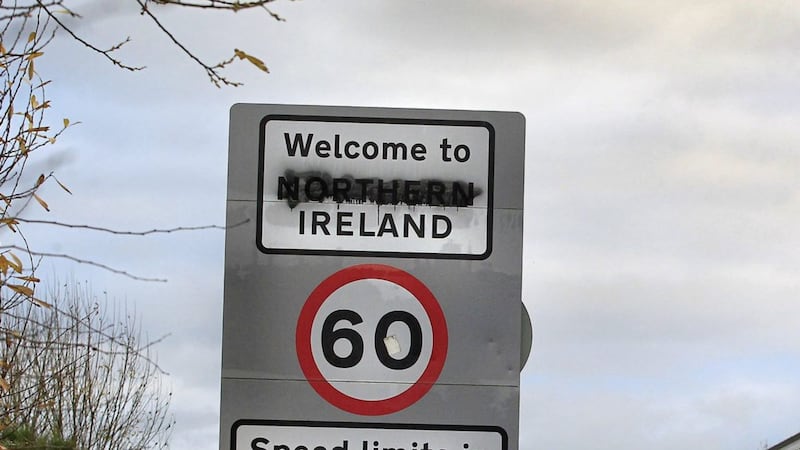There aren’t that many figures who make you prick up your ears when they speak amid today’s culture of noise.
I have in mind those with gravitas, gumption and integrity who step outside their own tribe and say uncomfortable, challenging things that prompt self-interrogation.
Seamus Mallon, statesman and patriot, at 82, is still one such person.
It doesn’t mean, however, that he gets everything quite right.
But he does command a hearing in a place where rigidity has made so many prisoners of history.
It is, therefore, not surprising that Mr Mallon’s recent comments about Irish unity have sparked considerable comment.
He questioned a fundamental provision in the Good Friday Agreement that provides for a united Ireland if it is voted for in a referendum by a majority in both parts of the island.
Under the agreement such a referendum shall be held “if at any time it appears likely” to the secretary of state that a majority would support change.
Mr Mallon argued that just as the SDLP had negotiated a provision in the agreement requiring that key Stormont decisions must enjoy “parallel consent”, i.e. the consent of both nationalists and unionists in the Assembly, to protect nationalists from an inbuilt unionist majority, so a united Ireland should not come about unless it has the consent of both main communities here.
He had come increasingly to the view that the Good Friday Agreement’s “metric of a bare 50 per cent +1 majority for unity in a border poll will not give us the kind of agreed and peaceful Ireland we seek.”
It is hard not to concur with his central contention that “unity by numbers” - as opposed to winning over the hearts and minds of unionists and sceptical nationalists – won’t work and would repeat the mistakes of the past. “My concern is that a very narrow vote for unity would lead to more division, instability and probably violence,” he wrote.
Seamus Mallon is right in appealing to the virtue of generosity and in putting himself in the shoes of unionists he is – while not using this Biblical-inspired idiom - “going the extra mile” (Matt. 5.41).
A premature vote without extensive preparatory work, discussion and debate over a considerable period in both parts of Ireland, would be grossly irresponsible and no sane Irish or British government would permit it.
Common sense tells us there would also need to be hard evidence of support for change in the Republic as the consent of voters there is also required.
It would be up to nationalist Ireland, led by the Irish government, to ultimately produce proposals for unity in a declaration echoing the Scottish government’s ill-fated 649-page blueprint for independence published in 2013.
Such a preparatory process may have to be initiated sooner rather than later, if a disastrous no-deal Brexit occurs resulting in majority support here for re-joining the European Union via a united Ireland - against the background of irresistible demands for another referendum on Scottish independence.
A premature referendum here would undoubtedly undermine the imperative of the political representatives of both main communities - assisted by a growing number of “others” in a reformed Assembly - to build trust and make this place work on an ongoing basis for the common good, whatever the longer-term future may hold.
Mr Mallon is right in warning about the extreme undesirability of a narrow vote.
However, he is treading dangerously in appearing to suggest that the agreed rules about the democratic realisation of Irish unity should be changed.
This would lead to cries of foul play by republicans and nationalists and could endanger the peace.
These rules are enshrined in the Irish Constitution and in UK law, in the Northern Ireland Act 1998.
They make clear that it is for a majority in both jurisdictions on this island to democratically decide on reunification.
These rules flow in part from the words of paragraph 4 of the Joint Declaration on Peace: The Downing Street Declaration of Prime Minister John Major and Taoiseach Albert Reynolds in December 1993 that reflect the John Hume-inspired doctrine of concurrent self-determination.
A crucial sentence reads: “The British Government agree that it is for the people of Ireland alone, by agreement between the two parts respectively, to exercise their right of self-determination, freely and concurrently given, North and South, to bring about a united Ireland, if that is their wish''.
The fact that no unionists have rushed to back Mr Mallon’s suggestion may indicate a welcome if grudging acceptance that to move the goalposts would be destabilising and unwise.








